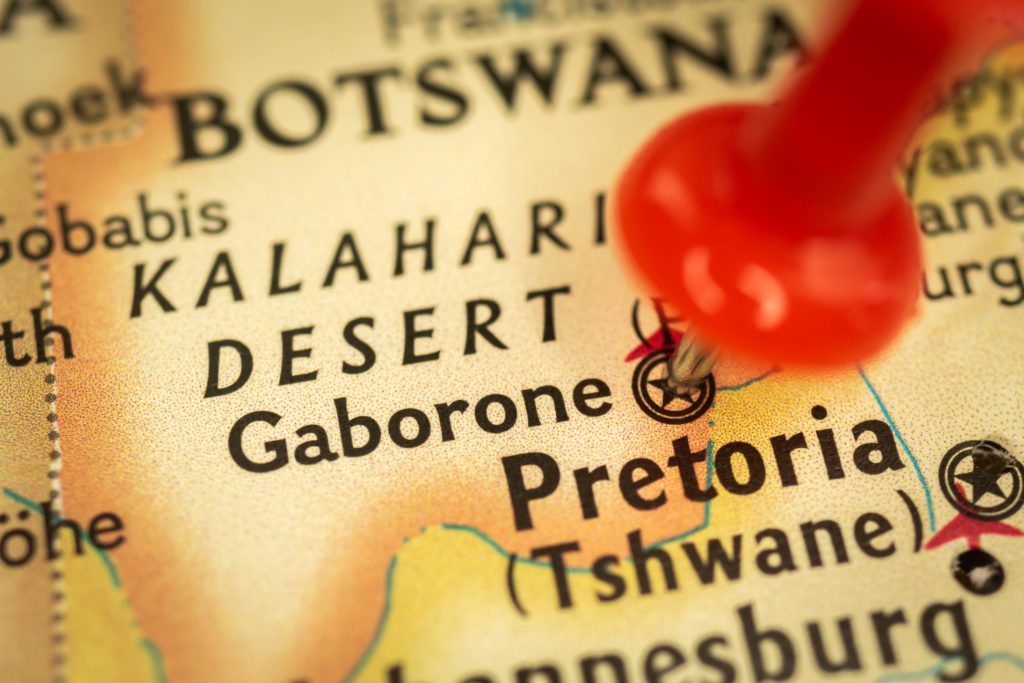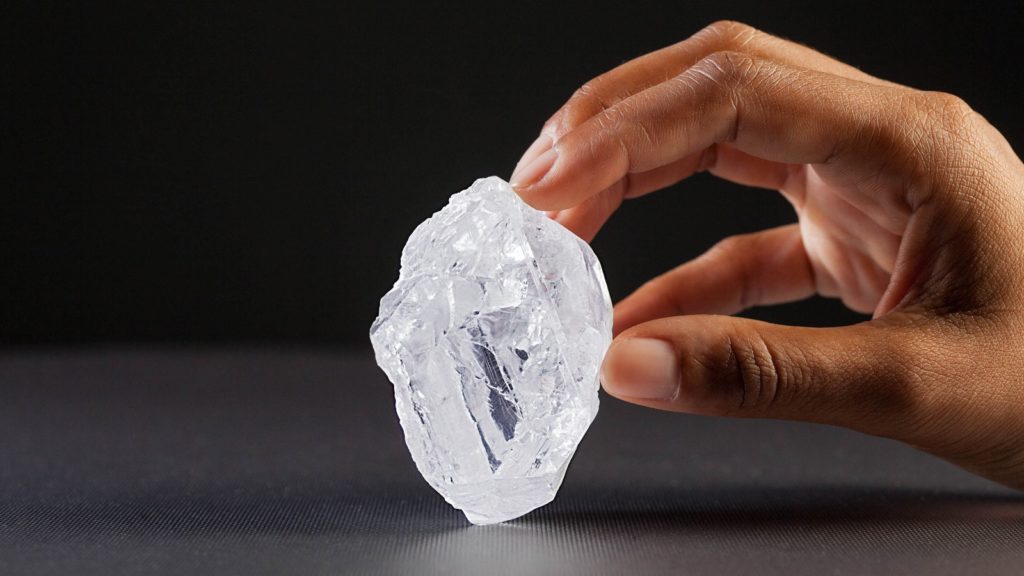- Perspective – July 2021
- Advert : Columbus Stainless
- Industry Insights & Analysis
- Market Intelligence
- Demand Sector
- Advert : NDE
- Market Insight
- Case Study – A Guide to Life Cycle Costing Analysis
- Industry News
- Africa Market Intelligence – Botswana
- Africa Market Intelligence – Nambia
- Profile Passionate Professionals
- Training Overview
- Advertorial : Columbus Stainless Champions Safety Week
- Advertorial : Macsteel Business Transformation focus delivers Independent Ownership
- Obituary
- Advert : Malondi Capital Investments
BOTSWANA AN ECONOMIC SUCCESS STORY
 Botswana is a development success story. A small, landlocked country of just over two million people, Botswana was one of the poorest countries in Africa with a per capita gross domestic product (GDP) of about $70 when it gained independence from Britain in 1966. In the years that followed, supported by the discovery of diamonds, Botswana has been one of the fastest growing economies in the world and moved into the ranks of upper-middle income countries. Real GDP showed robust growth of an average of 5% per annum over the past decade.
Botswana is a development success story. A small, landlocked country of just over two million people, Botswana was one of the poorest countries in Africa with a per capita gross domestic product (GDP) of about $70 when it gained independence from Britain in 1966. In the years that followed, supported by the discovery of diamonds, Botswana has been one of the fastest growing economies in the world and moved into the ranks of upper-middle income countries. Real GDP showed robust growth of an average of 5% per annum over the past decade.
Until the beginning of the global recession in 2008, Botswana maintained one of the world’s highest economic growth rates since its independence in 1966. Botswana recovered from the global recession in 2010, but only grew modestly until 2017, primarily due to a downturn in the global diamond market, though water and power shortages also played a role. Through fiscal discipline and sound management, Botswana has transformed itself from one of the poorest countries in the world five decades ago, into a
middle-income country with a per capita GDP of approximately $18 100 in 2017. Botswana also ranks as one of the least corrupt and best places to do business in Sub-Saharan Africa. Approximately 71% of the population of 2.3 million are urbanised and the literacy rate stands at 88.5% of the population.
The country has a mature democracy, with free and fair elections held regularly and the constitution provides for fundamental rights and freedoms.
The Botswana Democratic Party (BDP) has been in power since the first elections were held in 1965. The BDP won the 2014 general election, and Lieutenant-General Seretse Khama Ian Khama was sworn in as President for a second term.
DIAMONDS ARE FOREVER
 Due to its heavy reliance on diamond exports, Botswana’s economy closely follows global price expansion and currently accounts for one-quarter of GDP, approximately 85% of export earnings, and about one-third of the government’s revenues. In 2017, diamond exports increased to the highest levels since 2013 at about 22-million carats, driving Botswana’s economic growth to 4.5% and increasing foreign exchange reserves to about 45%
Due to its heavy reliance on diamond exports, Botswana’s economy closely follows global price expansion and currently accounts for one-quarter of GDP, approximately 85% of export earnings, and about one-third of the government’s revenues. In 2017, diamond exports increased to the highest levels since 2013 at about 22-million carats, driving Botswana’s economic growth to 4.5% and increasing foreign exchange reserves to about 45%
of GDP.
De Beers, a major international diamond company, signed a ten year deal with Botswana in 2012 and moved its rough stone sorting and trading division from London to Gaborone in 2013. The move was geared to support the development of Botswana’s nascent downstream diamond industry. The four largest export partners are Belgium (20.3%), India (12.6%,), UAE (12.4%) and South Africa (11.9%). In terms of imports, the largest trading partner by far, is South Africa (66.1%).
The major industries and commodities of Botswana include the following: diamonds, copper, nickel, salt, soda ash, potash, coal, iron ore, silver, livestock processing and textiles. In terms of sector breakdown, agriculture is 1.8%, industrial 32.9% and services 65.3%.
OPPORTUNITIES
- Manufacturing - Botswana employs more than 35 000 workers and is growing steadily since the early 2000s. The main manufacturing process involves the production of goods and services mainly for export purposes which is due to the abundance of available raw materials.
- Energy sources - Botswana has limited energy sources and relies on imports of electricity and petroleum products. There is currently a deficit
in power supply in Southern Africa and plenty of opportunities for doing business in Botswana by using solar and coal to generate power for domestic as well as export purposes.
Currently, the energy resources are:
-
- Coal Energy - the current coal energy can generate up to 90MW and will be decommissioned by 2021 and new coal plants have been commissioned which can generate 3000MW of power and will be constructed in small units; o Solar Energy - solar power generates up to 200MW, (end 2020) and currently needs donors to support this initiative. There are many opportunities to set up solar farms to supply and balance the current deficit.
- Agriculture - The agriculture industry is important in Botswana and with current national developments, the agriculture sector is decreasing in terms of GDP with the need to increase production and promote investments in the agro-industrial and supply chain
developments. - Mining - The mining sector contributes to nearly 24% of GDP in Botswana and is one of the key industries in the country. The industry has plenty of opportunities which include the expansion of existing mining projects as well as improving the value chain benefits.
- Automotive - Botswana is home to the growing automotive market due to the increase in demand by the African people. The agriculture industry will also grow with the increasing developments in the automotive industry which has mainly to do with logistic issues.

